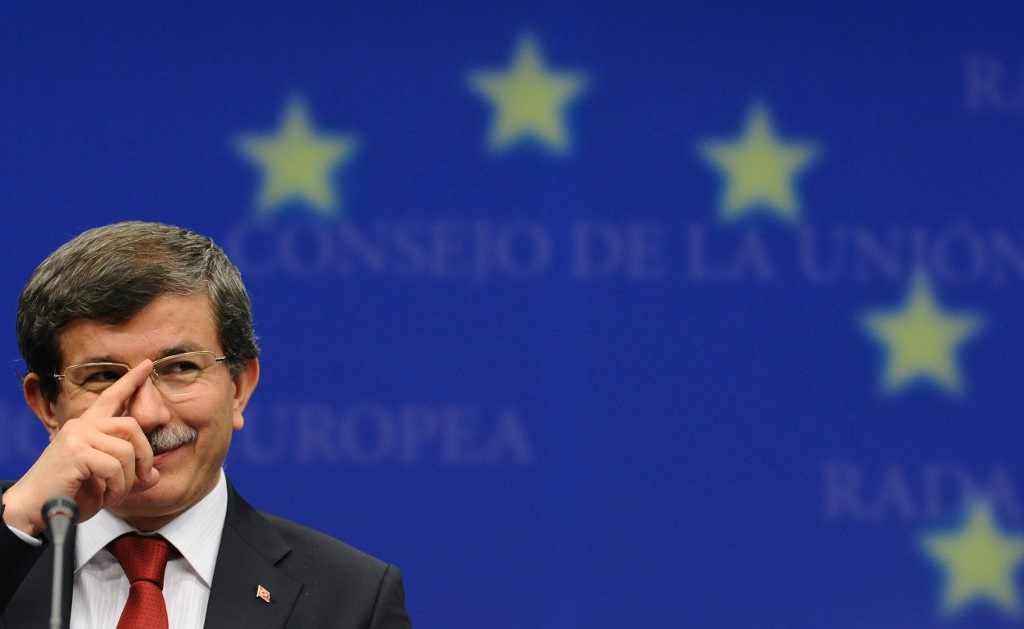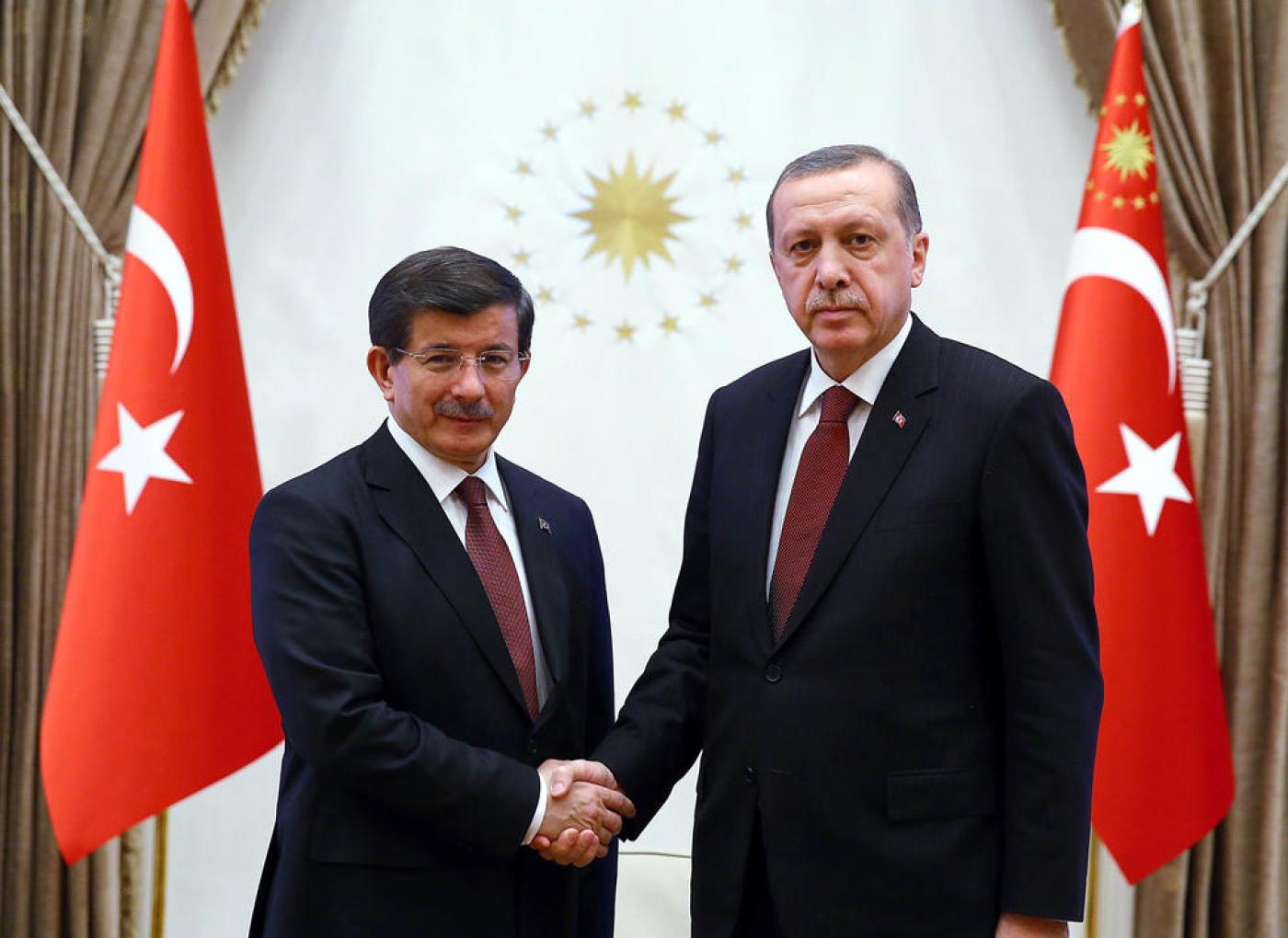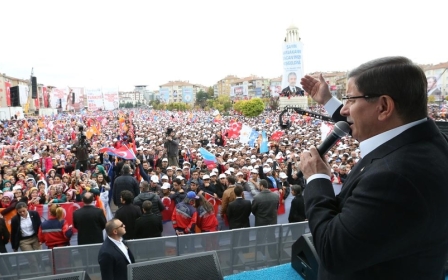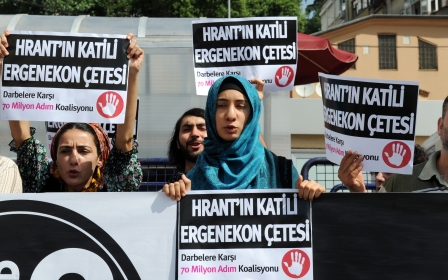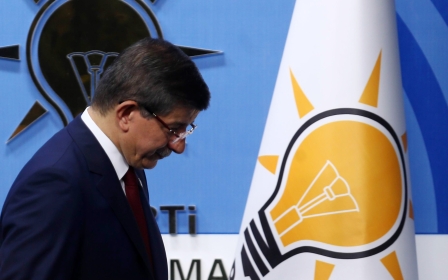Seven key moments in Ahmet Davutoglu's 17 years with the AKP
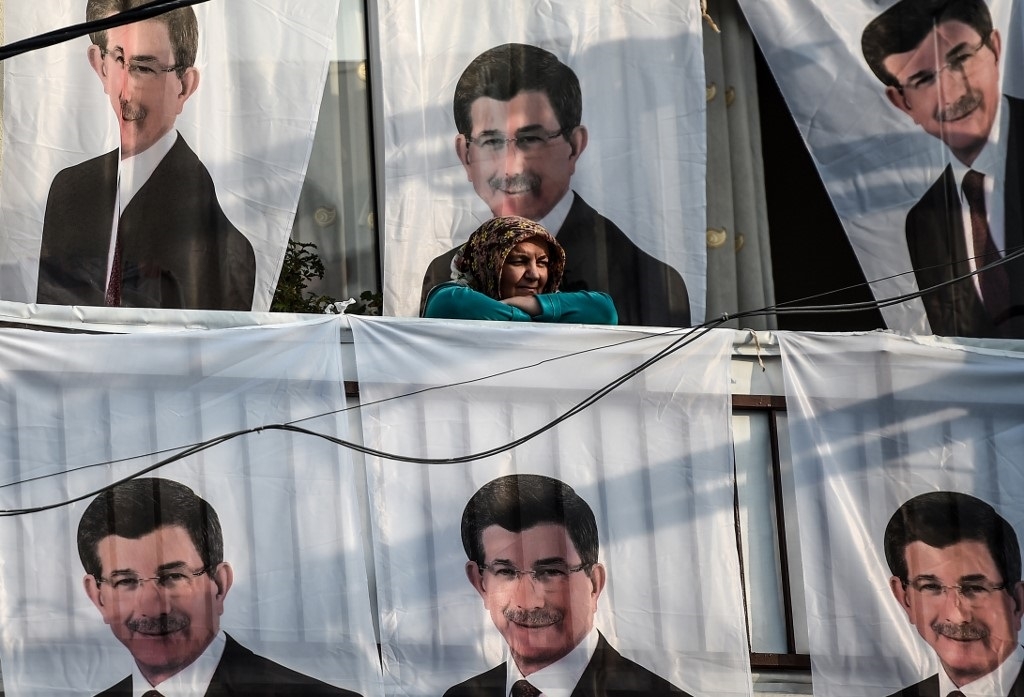
The leaders of Turkey’s ruling Justice and Development Party (AKP) voted late on Monday to expel Ahmet Davutoglu from its ranks, ending his 17-year career with the party during which time he served as foreign policy advisor, foreign minister and finally prime minister and chairman.
Davutoglu’s time in Turkish politics has coincided with tumultuous changes in the country and the region. Here's a recap of the highlights:
November 2002
Known as “Hoca” (teacher) in government circles because of his academic background on foreign relations, Davutoglu begins his political career as a foreign policy advisor and an ambassador in prime minister Abdullah Gul’s cabinet.
During his seven-year term in this role, Davutoglu is often called the “shadow foreign minister” as a result of his extensive influence on Turkey's foreign policy. One key policy is his “zero problems with neighbours” strategy to open up relations between Turkey and the Arab world and beyond.
New MEE newsletter: Jerusalem Dispatch
Sign up to get the latest insights and analysis on Israel-Palestine, alongside Turkey Unpacked and other MEE newsletters
1 May 2009
Davutoglu finally emerges as the official face of Turkish foreign policy following his appointment by then-prime minister Recep Tayyip Erdogan as foreign minister of Turkey.
Saluted as an academic minister because of his famed book “Strategic Depth”, Davutoglu quickly transforms Turkey's regional perspective by making visa-free travel with Ankara’s neighbours like Iraq, Syria, Lebanon, Jordan, Azerbaijan and Albania a norm rather than an exception.
Bilateral trade with these countries and others also increases significantly, helping promote tourism in Turkey. Restoring Ottoman ruins and boosting foreign aid to developing countries in Turkey’s “hinterland", Davutoglu tries to use Turkey’s soft power to stabilise its relations with regional governments.
However, his “zero problems with neighbours” policy is dealt a heavy blow when the Arab Spring upturns the table in the Middle East. Initially, the policy he helped to craft, which presented Turkey as a model country for states like Egypt, Libya, Tunis and Syria, succeeds.
But a few years later, counter military coups and further political upheaval erode Turkish influence in most of these countries, cornering Turkey into what Turkish officials called a “precious loneliness”. Particularly in Syria, Davutoglu’s stance in support of the opposition draws strong criticism from the Turkish opposition, who blame him for carrying out “a neo-Ottomanist” and adventurist foreign policy.
29 August 2014
After Erdogan becomes the new president of Turkey, he choses Davutoglu as his successor. The move blocks the return of former president Abdullah Gul to the party as the next prime minister. Davutoglu and Gul fall out over time.
During the summer of 2015, while an interim government is in charge because no party had received enough seats in June elections to form a government, the war with the Kurdistan Workers’ Party (PKK) starts again when militants kill two police officers in city of Sanliurfa.
1 November 2015
Davutoglu emerges as the victor in snap elections by winning the largest vote share ever for the AKP with 49 percent. His promise to make a substantial increase to the minimum wage, along with fear among voters of economic instability in the event of a coalition government, helps his party at the polls.
However, Davutoglu faces a major foreign policy crisis within weeks, when Turkish jets down a Russian warplane near the Syrian border over repeated violations of Turkish airspace.
In time, Davutoglu’s relationship with Erdogan will be undermined by severe disagreements on many issues: Erdogan opposes Davutoglu’s refugee deal with German President Angela Merkel, his plans to hold former ministers accountable on corruption charges and his proposed transparency law, which would supposedly undercut embezzlement but also embolden the opposition ahead of elections.
The two also clash on government appointments and plans to establish an executive presidential system.
5 May 2016
Four days after the release of an unsigned political manifesto prepared by Davutoglu's opponents, dubbed the “Pelican Brief”, Davutoglu announces his resignation as prime minister and chairman of the party.
The manifesto, allegedly prepared by a person or people close to Erdogan’s son-in-law Berat Albayrak, claims that Davutoglu’s “collaboration” with the West and his policies targetting Erdogan’s power and status made his ousting necessary.
But a week before the brief even appeared, the AKP's central executive committee had already stripped key powers from Davutoglu, a move widely interpreted as an intra-party coup.
22 April 2019
In an unexpected move, Davutoglu releases a manifesto in which he lays out his views on everything from foreign policy to the Kurdish question and takes aim at the ruling parties' practices.
Since his forced resignation in 2016, Davutoglu's take on Erdogan and his policies has waxed and waned. In a 2017 interview, he opposes radical changes brought by the proposed executive presidential system, which he believes will lack the necessary checks and balances for the country. Yet he and his associates vote in favour of the new system in parliament.
In 2018, after a search for political alternatives, he publicly supports Erdogan as his presidential candidate for the elections.
2 September 2019
Following Davutoglu's remarks earlier this year accusing Erdogan of ousting him when he was prime minister and the government of removing pro-Kurdish mayors, the AKP's central executive committee refers Davutoglu and his three colleagues to disciplinary action and asks for their removal from the party ranks.
Davutoglu’s dismissal is expected to be rubber stamped by the disciplinary committee.
Middle East Eye delivers independent and unrivalled coverage and analysis of the Middle East, North Africa and beyond. To learn more about republishing this content and the associated fees, please fill out this form. More about MEE can be found here.


